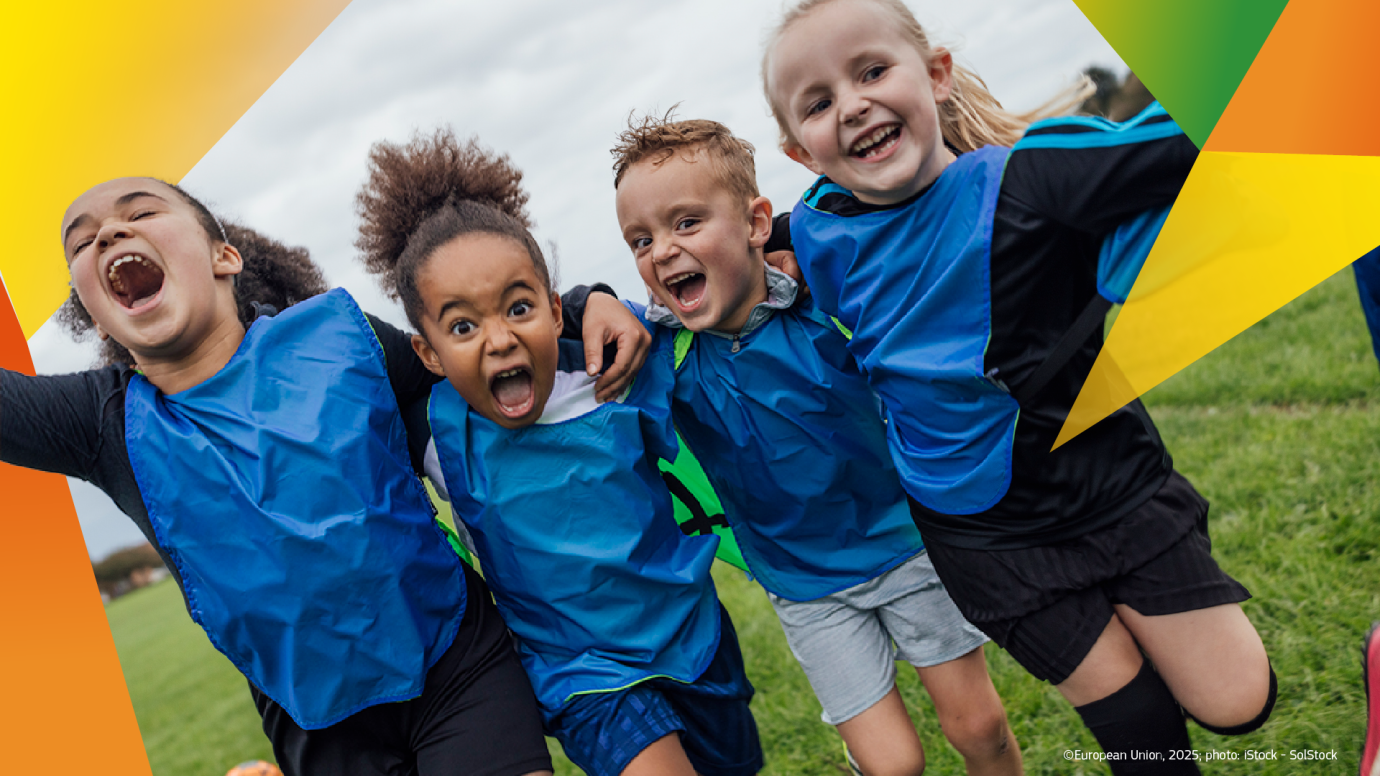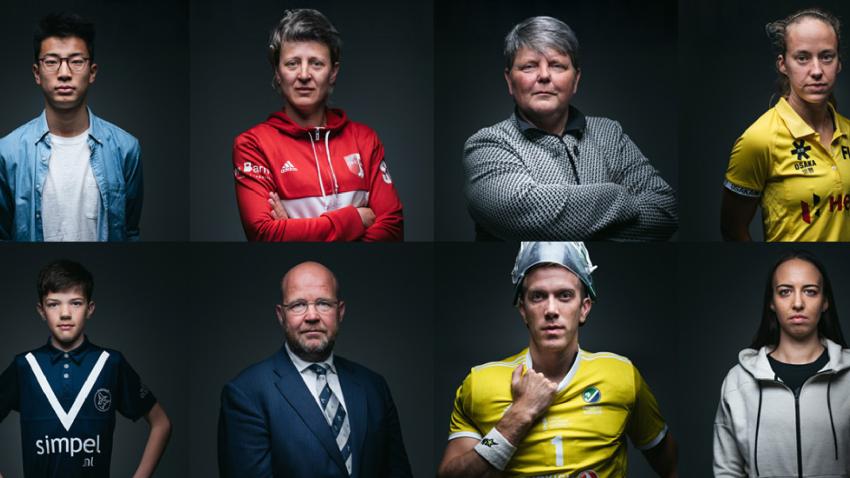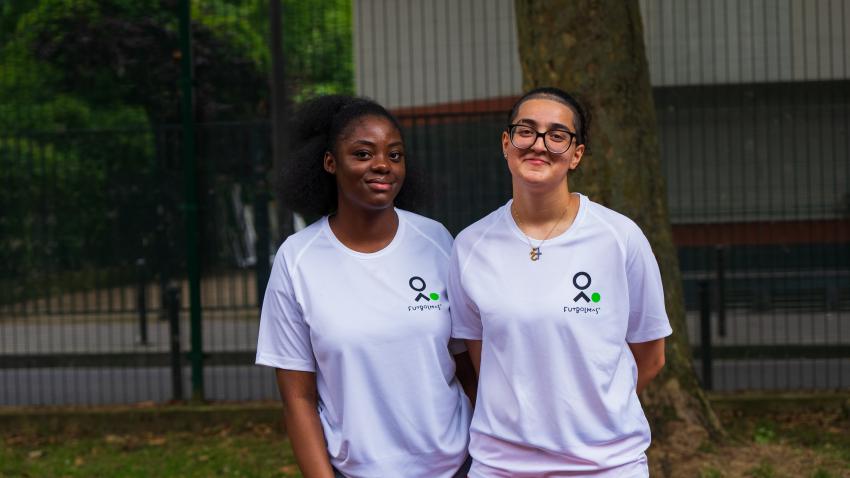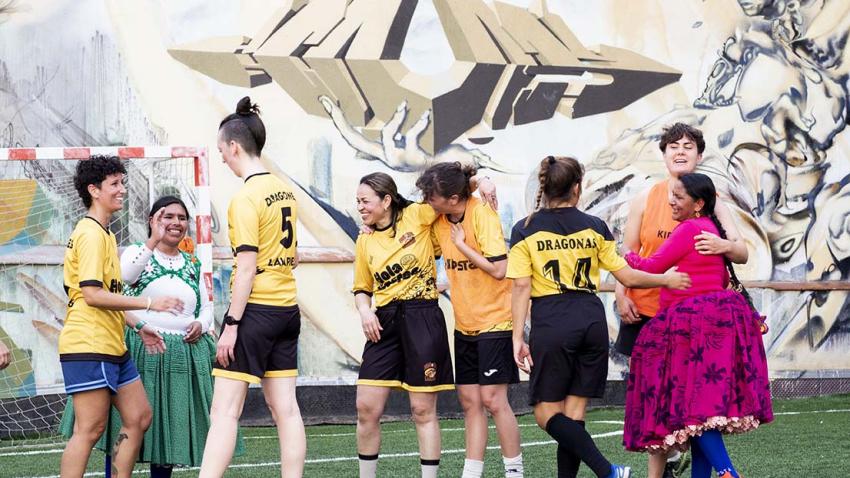#BeInclusive EU Sport Awards Finalists – Be Equal – Promoting gender equality in sport
Finalists of the ‘Be Equal’ category of the #BeInclusive EU Sport Awards are projects that promote gender equality in the sport sector, creating safe environments for girls and empowering women to be more resilient and self-confident.

Meet the “Be Equal – promoting gender equality in sport” finalists
EuroHockey, Belgium
Project title: Equally amazing gender balance charter
While hockey has achieved near parity in participation, women remain underrepresented in leadership, coaching and high-performance roles. To address this issue, EuroHockey has developed the Gender Balance Charter and started a hands-on campaign to equip national federations with the tools to make lasting changes.
The initiative includes
- a self-assessment framework
- training materials
- strategic support
- the creation of an Equality, Diversity and Inclusion Panel to ensure systemic change across all levels of the sport.
Ultimately, our goal is to embed equity and inclusion into the DNA of EuroHockey —not as an add-on, but as a core value.
The project allowed real changes to take place. More women have stepped into leadership roles, federations have adapted their structures, and a broader dialogue on inclusion has emerged.
At local level, the project gave women more, more opportunities, and a better reflection of the communities served. It has also created a culture where young girls can see themselves represented and where men and women work together as allies for equity.
EuroHockey intends to expand the programme with tailored support for smaller federations, the introduction of mentorship schemes and development of impact measurement tools. The organisation also commits to go beyond gender to consider intersectionality and broader diversity in sport leadership.
Fútbol Más France, France
Project title: District Spot: Empowering girls in and through sport
In July 2023, the organisation opened District Spot in Paris’ 19th arrondissement—one of the capital’s most deprived areas. Inspired by the Dutch Game Changer model, the project set out to address a pressing issue: the huge gender gap in participation in sports. Its mission was to create safe, welcoming and accessible spaces where girls between the ages of 10 and 17 could take part in sport on a regular basis, free of charge.
The project combines weekly sports sessions with monthly cultural outings and inspirational encounters. It’s not only about physical activity. It’s a chance for the girls to rediscover their city and build confidence off the pitch.
What makes District Spot different is its peer-led approach. Four young girls from the neighborhood serve as role models. As coordinators and mentors, they bring authenticity and relatability to the project, ensuring that it is truly shaped by the experiences of those it serves.
As a team of young women who come from similar neighborhoods, we know how important it is to feel understood and represented. That’s why we’re proud to lead this initiative together and show that change can come from within the community.
The result is a stronger sense of belonging, growing self-confidence and greater visibility for girls in public sports spaces—something that is still too rare in many urban areas. District Spot has become a noticable presence in the local community: a safe, inclusive programme that challenges stereotypes and promotes social bonds.
Looking ahead, Fútbol Más France aims to expand the initiative across other Paris districts, and beyond. There are also plans to develop the Role Model programme further and to set up international exchanges to connect girls across borders.
Dragones de Lavapiés, Spain
Project title: Dragonas Redefining Access through Gender-Inclusive Opportunities And Neighborhood Spaces (DRAGONAS)
From the very beginning, the mission of the club went beyond football. Dragones has always been a project rooted in participation, education, and community cohesion. Its values are based on social justice, anti-racism and inclusion. In line with these beliefs, the club has created Embajadores 18, a dedicated playing area developed in partnership with Madrid City Council. It became a safe and welcoming ground for women and queer players - spaces where many had previously felt unwelcome.
Out of this came Las Dragonas. A team of mothers from countries including Morocco, Brazil, and Bolivia, who took to the pitch and made it theirs. The club also formed a queer team and addressed challenges head-on—turning a moment of hostility into an educational opportunity by introducing a club-wide reflection on identity and respect.
The club now runs gender equality training for coaches. It has received national recognition from the Spanish Ministry of Equality and has published a practical handbook for inclusive sports clubs. Dragones has become a beacon of progressive sport, linking local action at grassroot level with wider national and international conversations.
We are very proud of what our project achieved: how Dragones served during the Covid pandemia, how the bonds created opened paths to solidarity and how creativity thrives in this superdiverse community.
More than numbers, the organisation’s success lies in the safe and dignified space they’ve created – where girls and women are not only welcome, but truly belong.
Last updated:





